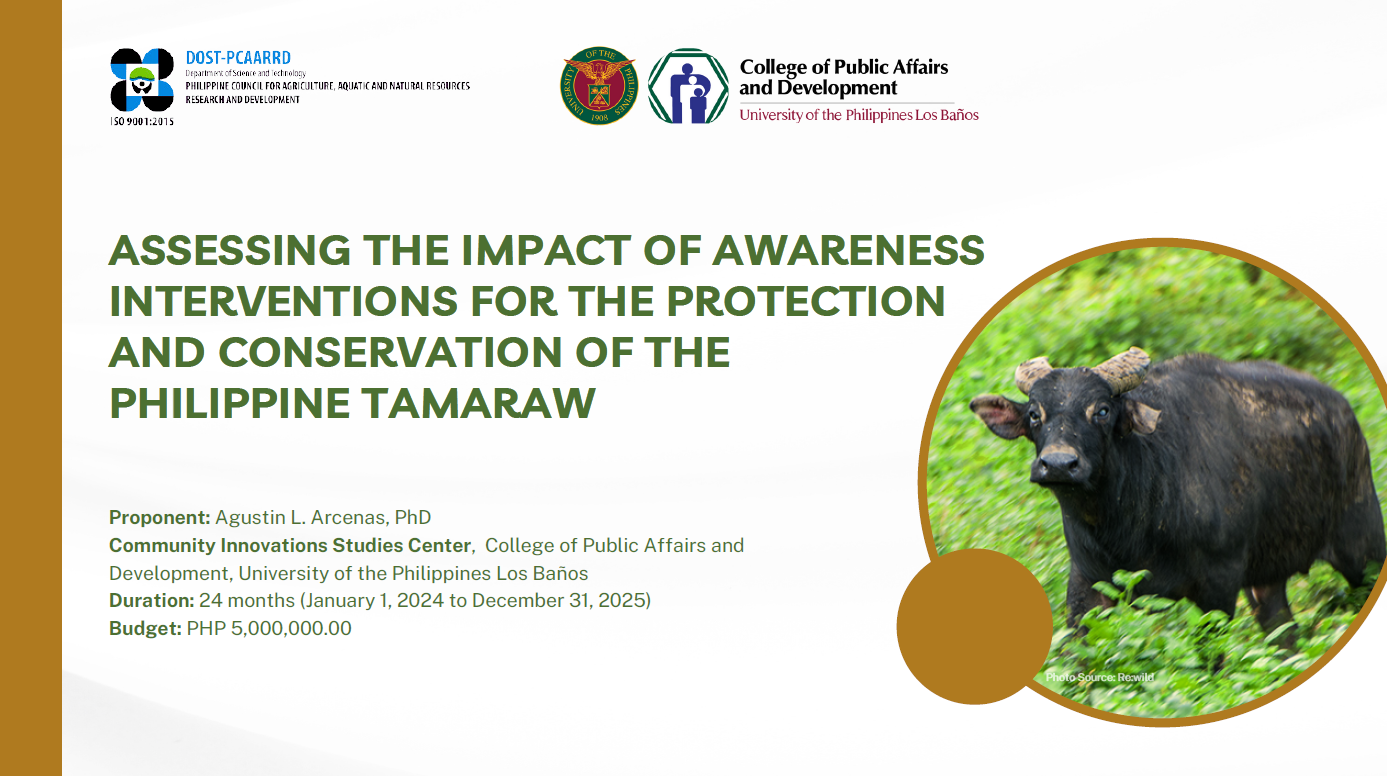
Presentation of plans and targets of the project, “Assessing the Impact of Awareness Interventions for the Protection and Conservation of the Philippine Tamaraw.” (Image credit: UPLB)
The Philippine tamaraw is an iconic species of the country's biodiversity. Endemic to the island of Mindoro, the Philippine tamaraw is in danger of extinction due to human activities, habitat loss, and climate change. Tamaraws serve as a reminder of the urgent need to safeguard the country's natural heritage.
In response to this, the Philippine Council for Agriculture, Aquatic, and Natural Resources Research and Development of the Department of Science and Technology (DOST-PCAARRD) and the University of the Philippines Los Banos (UPLB) have joined forces in a project, "Analyzing the Effectiveness of Awareness Interventions for the Protection and Conservation of the Philippine Tamaraw."
This collaborative effort will evaluate how various efforts to raise awareness and action interventions influence the attitudes and behaviors of people living in rural and urban provinces in the Philippines. This aims to encourage community-led initiatives for protecting biodiversity and ensuring the sustainable management of endangered species like the Philippine tamaraw.
During the inception meeting held last February 7, 2024, Project Leader Agustin Arcenas expressed that although the study primarily focuses on tamaraw conservation, the anticipated results are expected to have universal implications and could map out effective Information, Education, and Communication (IEC) strategies for biodiversity protection to complement regulatory policies that restrict the hunting of threatened species. In addition, the insights obtained from this project can be disseminated through diverse channels and collaborations. It serves as a conservation guide to organizations and policymakers. Moreover, this will generate necessary support and funding for protecting and conserving tamaraws and other wildlife species.
The project seeks to understand the current level of awareness and the value people attach to the Philippine tamaraw, which faces threats as a wildlife species. It also aims to develop and test different ways to raise awareness about tamaraws and evaluate how these methods affect people's perceptions. The project intends to determine whether these awareness-raising efforts are more effective in rural or urban areas and how they influence people's willingness to pay (WITP) to protect tamaraws.
Additionally, the project will examine local policies and legal frameworks to ensure that they consider economic, environmental, and social factors, including gender and indigenous practices, when protecting biodiversity. This project will recommend how local governments can integrate economic value-based approaches into their plans to protect animals effectively.
The inception meeting was attended by several key individuals, including Adjunct Professor Florencia Palis of the College of Arts and Sciences of the University of the Philippines Los Banos (UPLB), Associate Professor Jaimie Arias of UPLB, Mr. Elijah Pine of the College of Development Communication of UPLB, and the project team headed by Director Agustin Arcenas of Community Innovations Studies Center (CISC) of UPLB.
DOST-PCAARRD and UPLB hope this initiative will contribute to protecting the country’s biodiversity through effective awareness interventions that will complement existing policies and programs at the local and national levels.

